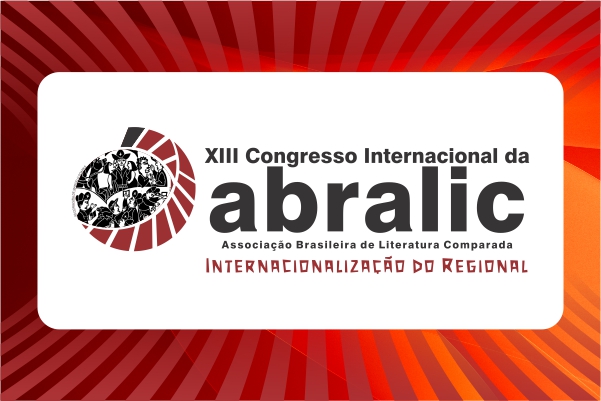“DOUBLE, DOUBLE TOIL AND TROUBLE:” INFINITY AND VORACITY OF LISTS IN SHAKESPEARE’S MACBETH
"2013-07-12 00:00:00" // app/Providers/../Base/Publico/Artigo/resources/show_includes/info_artigo.blade.php
App\Base\Administrativo\Model\Artigo {#1845 // app/Providers/../Base/Publico/Artigo/resources/show_includes/info_artigo.blade.php #connection: "mysql" +table: "artigo" #primaryKey: "id" #keyType: "int" +incrementing: true #with: [] #withCount: [] +preventsLazyLoading: false #perPage: 15 +exists: true +wasRecentlyCreated: false #escapeWhenCastingToString: false #attributes: array:35 [ "id" => 4418 "edicao_id" => 14 "trabalho_id" => 426 "inscrito_id" => 768 "titulo" => "“DOUBLE, DOUBLE TOIL AND TROUBLE:” INFINITY AND VORACITY OF LISTS IN SHAKESPEARE’S MACBETH" "resumo" => "The knowledge of liminal objects that lay on the margins of charted territory tends to defy many accepted systems of classification, defining such objects or things, listed in literary works with poetic cultivation, as a chaos of immoderation (Eco 2009) or as a dizzying foreshortening of perception (Mauriès 2002). The history of literature abounds with lists and collections of things and objects: they are both fantastic and disturbing, excessive and devoid of apparent correspondence, analogical and symmetrical, vertiginous and voracious, encompassing naturalia and artificialia; in short, a quite uncanny Theatrum Mundi. Such is the case of the many lists, enumerations, catalogues found in Shakespeare’s Macbeth, also infinitely voracious is the list of malign substances used by the witches. We cannot deny, however, that the witches were excessively coherent when they enumerated everything to double as well as treble Macbeth’s toils and troubles with a community of purpose: kinship of the things listed." "modalidade" => null "area_tematica" => null "palavra_chave" => null "idioma" => null "arquivo" => "Completo_Comunicacao_oral_idinscrito_768_16d31f36fb8963f83636c0c19bbb4e27.pdf" "created_at" => "2020-05-28 15:52:50" "updated_at" => "2020-06-10 13:11:26" "ativo" => 1 "autor_nome" => "LUIZ FERNANDO FERREIRA SÁ" "autor_nome_curto" => "LUIZ SÁ" "autor_email" => "saluiz@terra.com.br" "autor_ies" => "UFMG" "autor_imagem" => "" "edicao_url" => "anais-abralic-internacional" "edicao_nome" => "Anais ABRALIC Internacional" "edicao_evento" => "XIII Congresso Internacional da Associação Brasileira de Literatura Comparada" "edicao_ano" => 2013 "edicao_pasta" => "anais/abralic/2013" "edicao_logo" => "5e48acf34819c_15022020234611.png" "edicao_capa" => "5f17347012303_21072020153112.jpg" "data_publicacao" => null "edicao_publicada_em" => "2013-07-12 00:00:00" "publicacao_id" => 12 "publicacao_nome" => "Revista ABRALIC INTERNACIONAL" "publicacao_codigo" => "2317-157X" "tipo_codigo_id" => 1 "tipo_codigo_nome" => "ISSN" "tipo_publicacao_id" => 1 "tipo_publicacao_nome" => "ANAIS de Evento" ] #original: array:35 [ "id" => 4418 "edicao_id" => 14 "trabalho_id" => 426 "inscrito_id" => 768 "titulo" => "“DOUBLE, DOUBLE TOIL AND TROUBLE:” INFINITY AND VORACITY OF LISTS IN SHAKESPEARE’S MACBETH" "resumo" => "The knowledge of liminal objects that lay on the margins of charted territory tends to defy many accepted systems of classification, defining such objects or things, listed in literary works with poetic cultivation, as a chaos of immoderation (Eco 2009) or as a dizzying foreshortening of perception (Mauriès 2002). The history of literature abounds with lists and collections of things and objects: they are both fantastic and disturbing, excessive and devoid of apparent correspondence, analogical and symmetrical, vertiginous and voracious, encompassing naturalia and artificialia; in short, a quite uncanny Theatrum Mundi. Such is the case of the many lists, enumerations, catalogues found in Shakespeare’s Macbeth, also infinitely voracious is the list of malign substances used by the witches. We cannot deny, however, that the witches were excessively coherent when they enumerated everything to double as well as treble Macbeth’s toils and troubles with a community of purpose: kinship of the things listed." "modalidade" => null "area_tematica" => null "palavra_chave" => null "idioma" => null "arquivo" => "Completo_Comunicacao_oral_idinscrito_768_16d31f36fb8963f83636c0c19bbb4e27.pdf" "created_at" => "2020-05-28 15:52:50" "updated_at" => "2020-06-10 13:11:26" "ativo" => 1 "autor_nome" => "LUIZ FERNANDO FERREIRA SÁ" "autor_nome_curto" => "LUIZ SÁ" "autor_email" => "saluiz@terra.com.br" "autor_ies" => "UFMG" "autor_imagem" => "" "edicao_url" => "anais-abralic-internacional" "edicao_nome" => "Anais ABRALIC Internacional" "edicao_evento" => "XIII Congresso Internacional da Associação Brasileira de Literatura Comparada" "edicao_ano" => 2013 "edicao_pasta" => "anais/abralic/2013" "edicao_logo" => "5e48acf34819c_15022020234611.png" "edicao_capa" => "5f17347012303_21072020153112.jpg" "data_publicacao" => null "edicao_publicada_em" => "2013-07-12 00:00:00" "publicacao_id" => 12 "publicacao_nome" => "Revista ABRALIC INTERNACIONAL" "publicacao_codigo" => "2317-157X" "tipo_codigo_id" => 1 "tipo_codigo_nome" => "ISSN" "tipo_publicacao_id" => 1 "tipo_publicacao_nome" => "ANAIS de Evento" ] #changes: [] #casts: array:14 [ "id" => "integer" "edicao_id" => "integer" "trabalho_id" => "integer" "inscrito_id" => "integer" "titulo" => "string" "resumo" => "string" "modalidade" => "string" "area_tematica" => "string" "palavra_chave" => "string" "idioma" => "string" "arquivo" => "string" "created_at" => "datetime" "updated_at" => "datetime" "ativo" => "boolean" ] #classCastCache: [] #attributeCastCache: [] #dates: [] #dateFormat: null #appends: [] #dispatchesEvents: [] #observables: [] #relations: [] #touches: [] +timestamps: false #hidden: [] #visible: [] +fillable: array:13 [ 0 => "edicao_id" 1 => "trabalho_id" 2 => "inscrito_id" 3 => "titulo" 4 => "resumo" 5 => "modalidade" 6 => "area_tematica" 7 => "palavra_chave" 8 => "idioma" 9 => "arquivo" 10 => "created_at" 11 => "updated_at" 12 => "ativo" ] #guarded: array:1 [ 0 => "*" ] }



